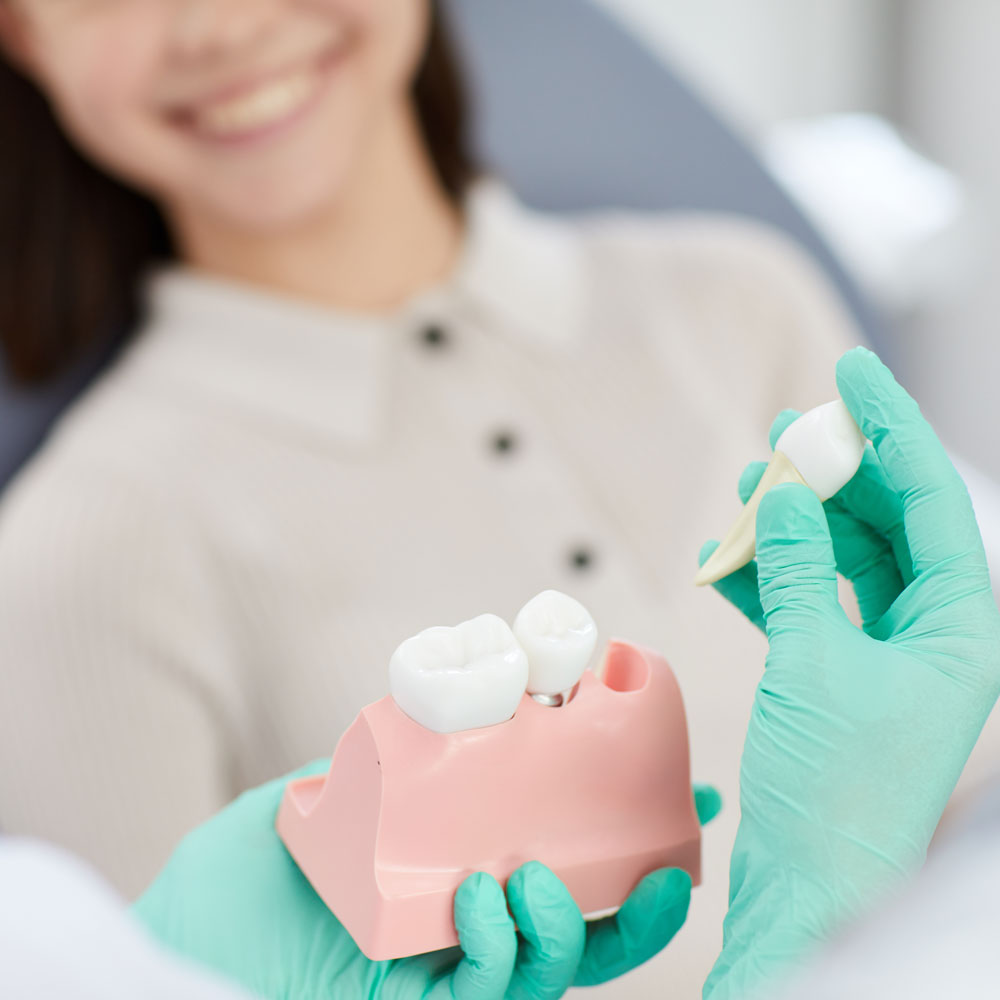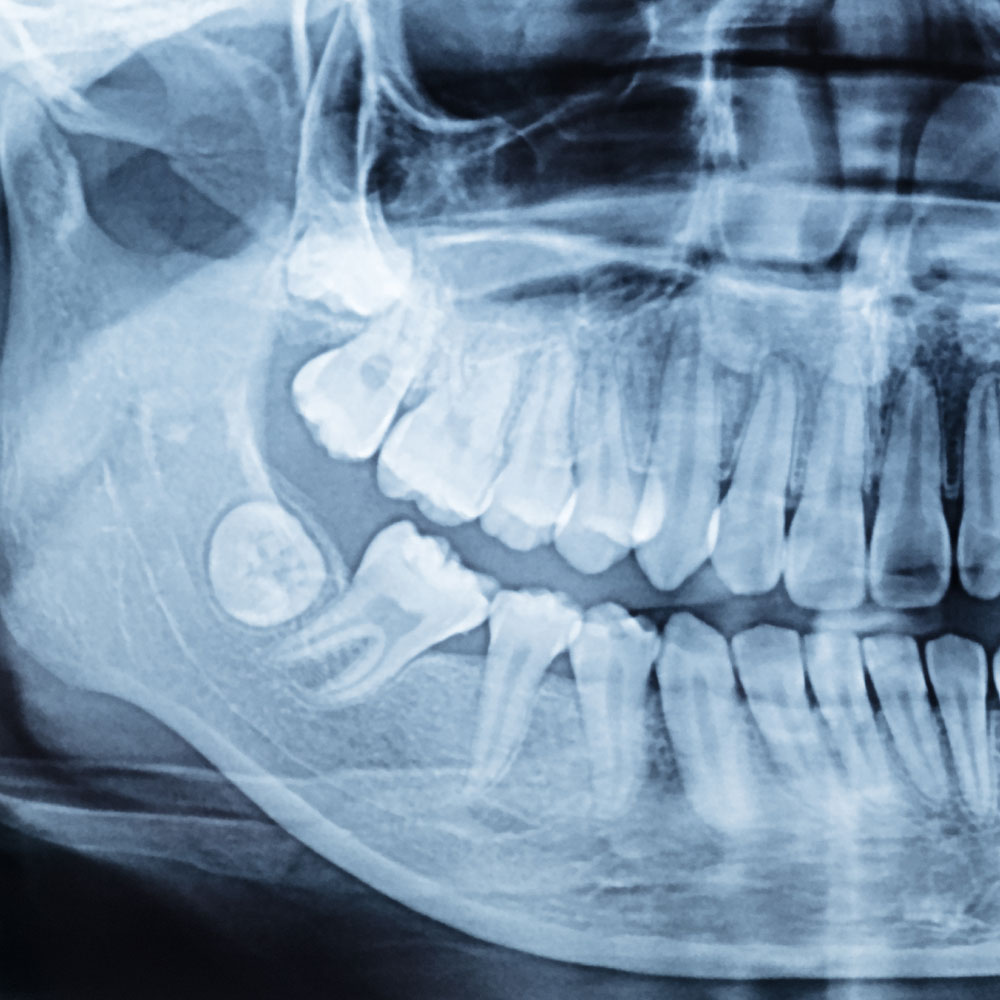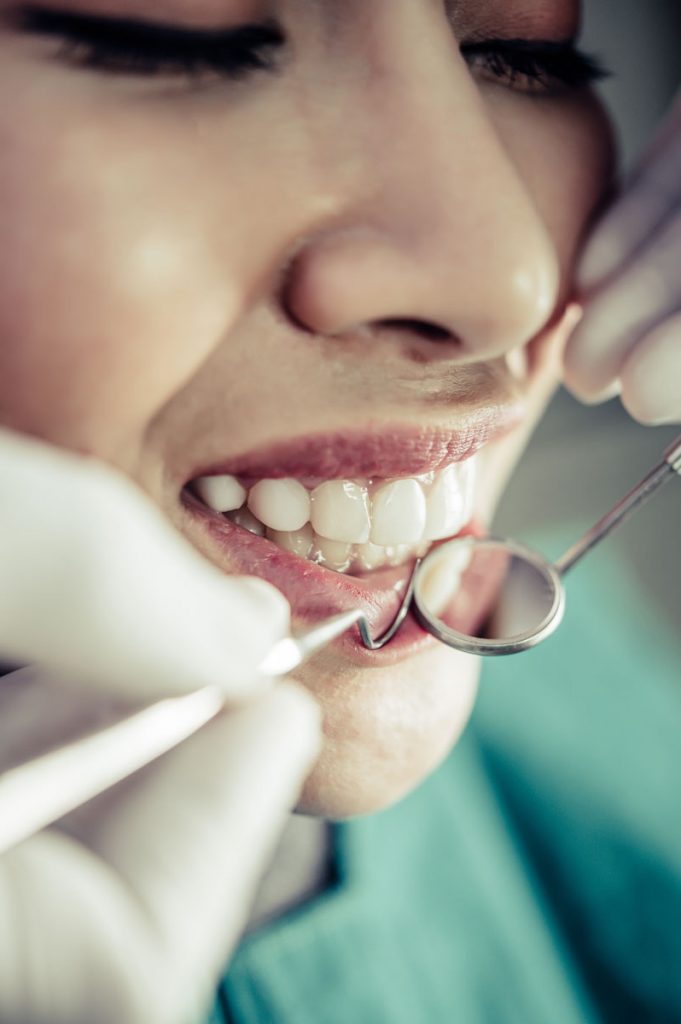
Emergency tooth extraction appointment
Tooth extraction is generally reserved as the last treatment measure when nothing else can be done to resolve the tooth infection and prevent its progression. If you require tooth removal, book an appointment at one of our 4 centrally located London clinics.

When is a tooth extraction necessary?
There can be a number of reasons for tooth removal as enlisted ahead.
- The most common reason for tooth extraction is dental decay. Sometimes, when dental caries is not diagnosed and treated early, it can progress to involve the entire tooth. Once the entire crown structure of the tooth is involved in the decay, it damages the tooth, and the only option left is to remove the root left and replace it with the help of a dental implant.
- When dental decay reaches the gingiva or starts on the surface of the tooth’s roots.

- Wisdom teeth or third molars are notorious for erupting at unusual positions and angles. Sometimes, they can also not erupt completely, can get involved in dental decay, or be the cause of gum inflammation. In such cases, these offending teeth have to be extracted.
- Teeth which loosen because of gum diseases like periodontitis.
- Teeth with large dental abscesses that cannot be treated by root canal treatments.
- Severely traumatised and fractured tooth which cannot be saved.
- When there is a lack of space and for orthodontic treatments.
- Excess tooth which erupted in an unfortunate location and disturbs the oral harmony.
Types of Tooth Extraction
Simple tooth extractions
Tooth extractions in London can be classified as simple when a visible tooth structure is removed from the mouth. Simple tooth extractions are also known as intralveolar or forceps extraction. It is a closed method of tooth extraction and done with forceps and extractions; no incisions or bone cutting is done.
Surgical tooth extractions
Surgical tooth extractions are also called transalveolar extractions. It is usually done when the tooth structure is not clearly visible, and the surgeon has to incise the gums and bone to locate the tooth structure and remove it. Our dentists will opt for a surgical extraction when you have an impacted tooth or tooth which have been broken or decayed till or below the gum line. It is a more extensive surgical procedure than simple extractions.

What to expect during tooth extraction?
During your initial appointment at our clinic in London, our dentist will do a thorough examination of your oral cavity. After this, they will prepare a complete treatment plan and decide on the method of extraction. During this time, they might take some X-rays and begin the process of tooth extraction.
Once adequate anaesthesia has been achieved, our dentist will begin the extraction process by carefully incising the gums to expose the underlying wisdom tooth. In cases where the wisdom tooth is impacted into the bone, the bone has to be cut to create access to the tooth structure. The amount of bone removed depends upon the amount of bone covering the tooth and the angulation of the tooth.
The first step in tooth extraction is to numb the treatment area. This can be achieved by administering local anaesthesia via an injection to block the nerves. In some cases, nitrous oxide may be used to relax you and ensure you are comfortable during the procedure.
In cases of surgical extraction, you might be put under general anaesthesia, which completely puts you to sleep. This method is reserved when the extractions are complicated, and our dentist deems the use of general anaesthesia necessary.
After adequate anaesthesia has been achieved, our dentist will remove the tooth with forceps and elevators in cases of simple extractions. In cases of surgical extractions, our dentist will make a small incision and may remove some bone to have adequate access to the tooth structure for removal.

What to do after tooth extraction?
Simple tooth extractions generally have a shorter healing and recovery time than surgical extractions. Our dentist may prescribe antibiotics in cases of infection and prescription-strength painkillers for a few days to manage the pain and discomfort post-extraction.
Our dentist will also give you specific instructions to make sure you heal uneventfully, and there are no complications.
- Our dentist will pack the extraction wound to stop the bleeding; however, you may experience little bleeding for the next 24 hours. In cases of bleeding which doesn’t stop, contact us right away.
- You can apply ice to reduce the swelling for 10-20 mins at a time.
- Ensure you rest and relax after a surgical extraction; since it is a surgery, a little discomfort is expected.
- You must also avoid smoking, spitting, rinsing or drinking through a straw for the first 24 hours to avoid dislodging the clot.
- Avoid alcoholic beverage for 24 hours.
- Keep your mouth clean by carefully brushing and gently flossing.
- Eat soft foods.
- Avoid foods that are hot.

Following a tooth extraction
A tooth extraction will leave an empty space in your mouth. This space must be filled to ensure the oral harmony is maintained and the remaining teeth do not collapse into space.
Once your extraction wound heals completely, our dentist will suggest you opt for a tooth replacement. If the neighbouring teeth are strong enough, you can opt for a dental bridge. A dental bridge takes the support of two adjacent teeth to sit a false tooth into the empty space.
If your remaining teeth are not strong enough or you are seeking a more superior and permanent solution, you can opt for a dental implant. A dental implant is essentially a screw that is secured into your jawbone, and a crown is placed over it.
